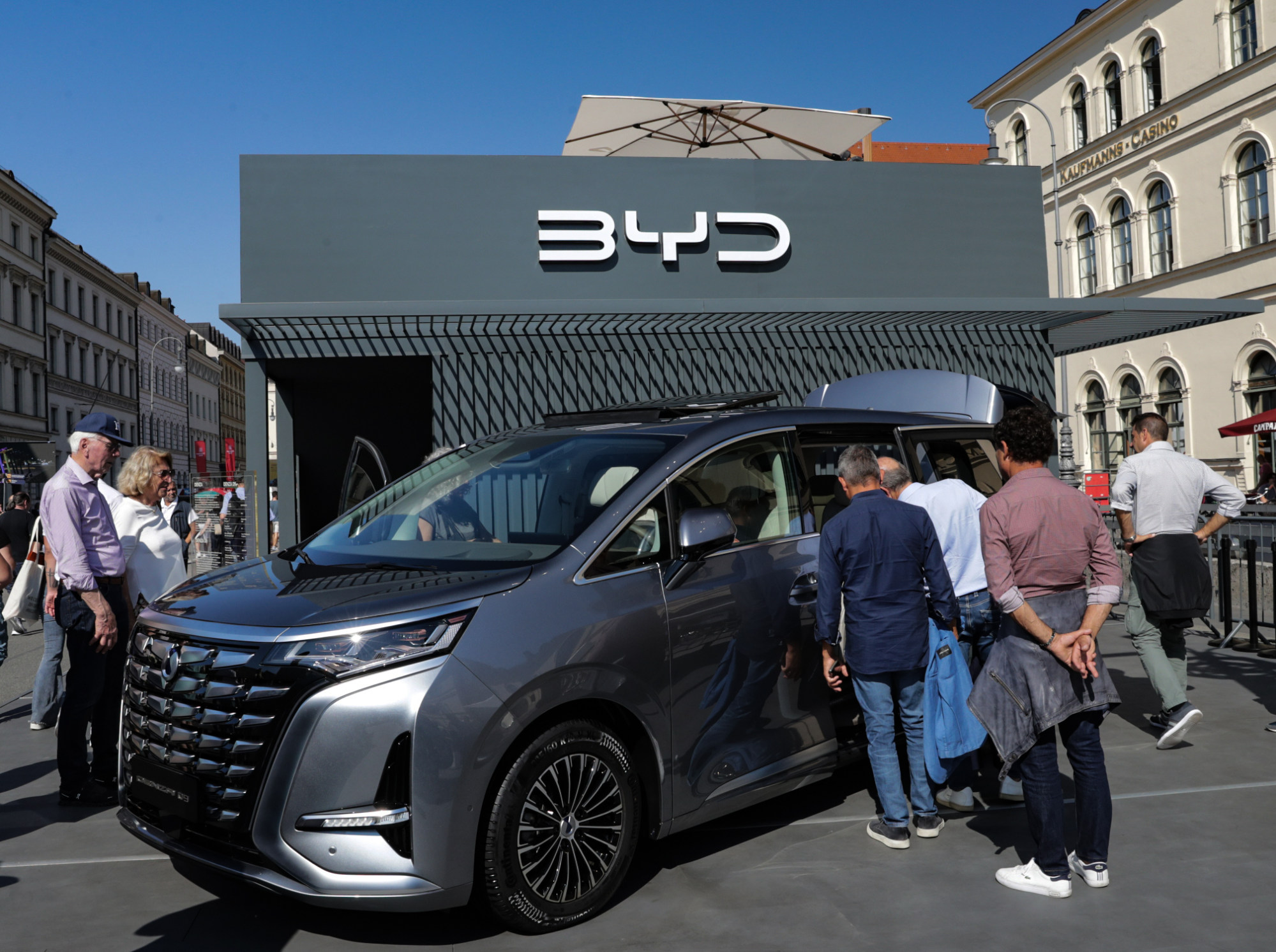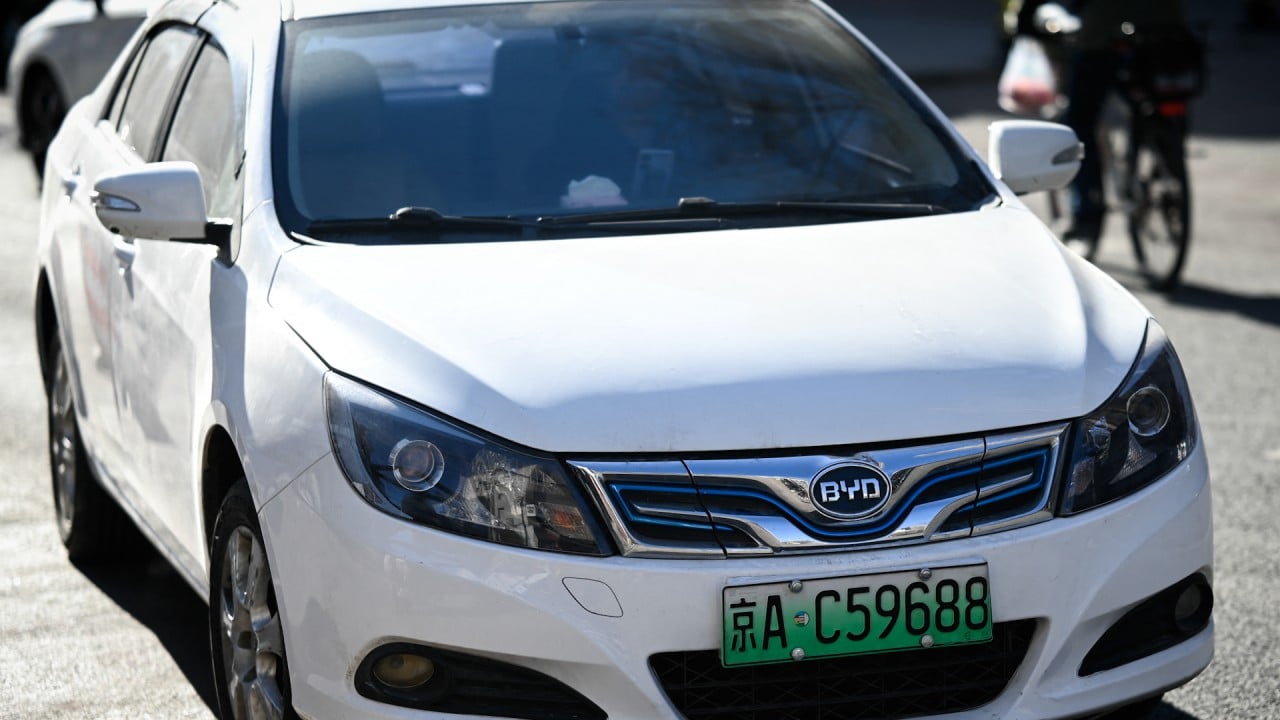
10 Jan VW and GM lose ground to Chinese EV makers as petrol-heavy line-ups fall out of favour in world’s largest car market
VW reported on Tuesday that it delivered 3.24 million units in mainland China and Hong Kong last year, a relatively weak 1.2 per cent year-on-year increase in a market that grew 5.6 per cent overall.
The German company sold 23.2 per cent more pure electric cars in mainland China and Hong Kong than it did in 2022, but the total was only 191,800. Meanwhile, the mainland EV market jumped 37 per cent last year, with deliveries of pure electric and plug-in hybrid cars hitting 8.9 million units.

“We are tailoring our portfolio to the needs of Chinese customers,” Ralf Brandstatter, a VW group board member for China, said in a statement. “While the situation will remain demanding over the next two years, we are further developing our technological capabilities and setting up our business for the future.”
It was the first time since 2009 that the American carmaker’s sales in China fell below its deliveries in the US, where it sold 2.59 million units in 2023, up 14 per cent on year.
GM said EVs accounted for a quarter of its total deliveries in China, but it did not provide a year-on-year growth number or publish EV sales data for China in 2022.
“GM will continue its intensive new-energy vehicle launch cadence in China in 2024,” it said in a statement.
China Evergrande: key director at EV subsidiary arrested for unspecified crimes
China Evergrande: key director at EV subsidiary arrested for unspecified crimes
He also forecast that mainland carmakers would control 33 per cent of the global market by 2030, nearly double the 17 per cent in 2022, buoyed by the increasing popularity of battery-powered vehicles.
Chinese EV maker Geely woos mainstream buyers with pure electric Galaxy model
Chinese EV maker Geely woos mainstream buyers with pure electric Galaxy model
The country is already on track to become the world’s largest car exporter in 2023, having exported 4.4 million units in the first 11 months, an increase of 58 per cent from 2022, according to data from the China Association of Automobile Manufacturers.
In the same period, Japanese carmakers, the world’s top exporters in 2022, sold 3.99 million units abroad, according to data from the Japan Automobile Industry Association.

